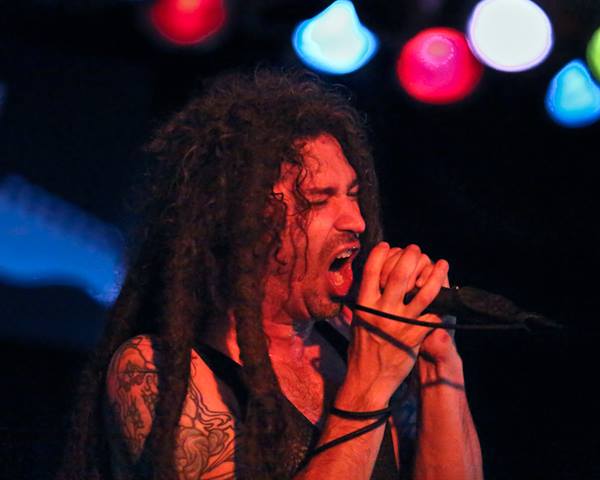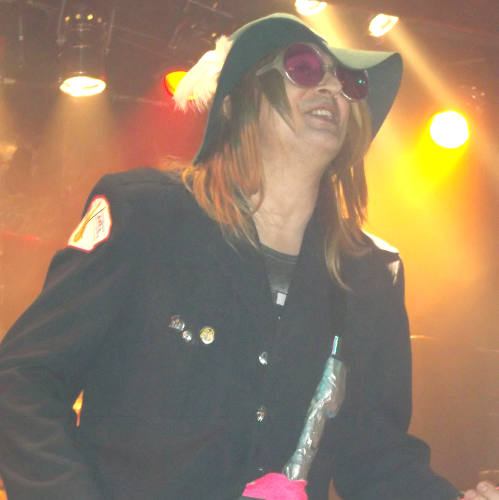by Alissa Ordabai
Staff Writer —
May 26, 2012 at Divan du Monde, Paris, France
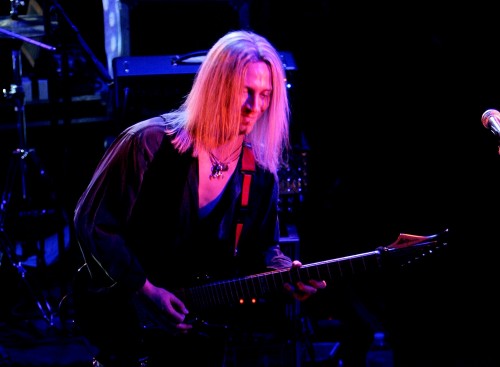 The idea of France as a high-tech guitar hotspot takes some getting used to, but anglo-centric doubting Thomases were given something to chew on after tonight’s show at Divan du Monde. The gritty, grotty Parisian club at the foot of the Montmartre Hill was where Stéphan Forté – Adagio’s axe-man extraordinaire – was showcasing his freshly released full-length solo debut The Shadows Compendium. And it took him just a few numbers into the set to prove that virtuosic chops and bona fide flare for Neo-classical drama can not only take root on French soil, but also evolve into something unique.
The idea of France as a high-tech guitar hotspot takes some getting used to, but anglo-centric doubting Thomases were given something to chew on after tonight’s show at Divan du Monde. The gritty, grotty Parisian club at the foot of the Montmartre Hill was where Stéphan Forté – Adagio’s axe-man extraordinaire – was showcasing his freshly released full-length solo debut The Shadows Compendium. And it took him just a few numbers into the set to prove that virtuosic chops and bona fide flare for Neo-classical drama can not only take root on French soil, but also evolve into something unique.
Snazzy guitar technique can these days be flashed around by shred heads in just about any country, but it takes things to say, as well as taste and a certain kind of self-awareness to make technique serve the music, not the other way around. And you can’t fault Forté for the lack of either: even when he pours showers of notes over his rocket-propelled grooves or sets his ostentatious leads against the soaring melodies, the focus stays on the ultimate goal – composition as opposed to demonstrations.
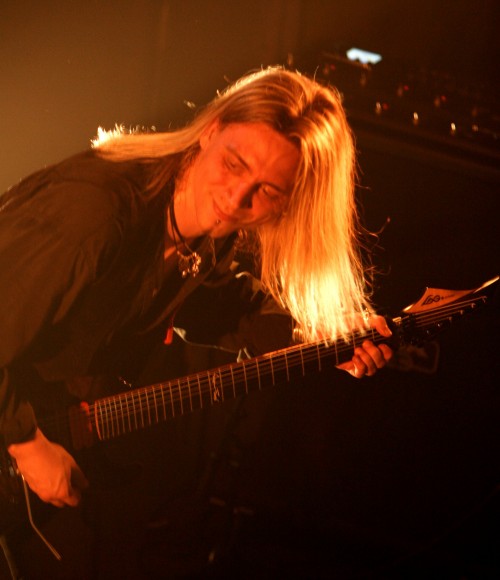 A special kind of resourcefulness is needed to come up with material as irregular and as dramatic as Forté’s, and the standout of the show “Prophecies of Loki XXI” was perhaps the most vivid illustration of how Forté works as a composer. The wildest piece he’s written to date, it is all about fierce harmonic changes battling out a blitzkrieg of epic proportions, rip-roaring virtuosic leads, and the overall apocalyptic vision of the most grandiose kind. This sort of lofty writing which pulls all the stops is where it’s at with Forté – multi-layered, big-scale harmonic ideas and exuberant high-tech leads working to create a world as unique as it is extravagant.
A special kind of resourcefulness is needed to come up with material as irregular and as dramatic as Forté’s, and the standout of the show “Prophecies of Loki XXI” was perhaps the most vivid illustration of how Forté works as a composer. The wildest piece he’s written to date, it is all about fierce harmonic changes battling out a blitzkrieg of epic proportions, rip-roaring virtuosic leads, and the overall apocalyptic vision of the most grandiose kind. This sort of lofty writing which pulls all the stops is where it’s at with Forté – multi-layered, big-scale harmonic ideas and exuberant high-tech leads working to create a world as unique as it is extravagant.
The crowd welcomed Forté not just with warmth, but with genuine awe, anticipatory silence ensuing between numbers after applause. Different from audiences in the States or in England, the audience tonight was receptive but at the same time respectful, responding with equal delight both to Forté’s technique and the actual songs.
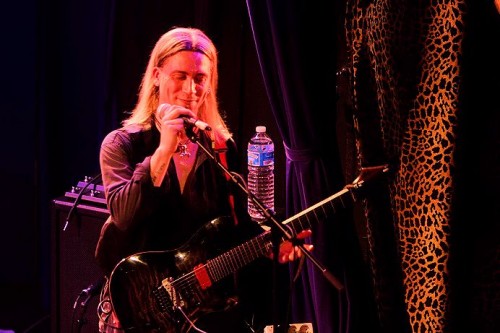 So given this was France, no wonder Forté’s interpretation of Beethoven’s “Moonlight Sonata” became the biggest highlight of the set. More understated and open-ended than the studio version, it was a telling piece, showing that underneath Forté’s formidable chops, his sense of drama and his aim to stop at nothing to convey is inner realities, there are layers of musical culture stretching back not just to Neo-classical players of the Eighties, but further down in history.
So given this was France, no wonder Forté’s interpretation of Beethoven’s “Moonlight Sonata” became the biggest highlight of the set. More understated and open-ended than the studio version, it was a telling piece, showing that underneath Forté’s formidable chops, his sense of drama and his aim to stop at nothing to convey is inner realities, there are layers of musical culture stretching back not just to Neo-classical players of the Eighties, but further down in history.
Forté’s graceful rendition of Beethoven’s sonata would have been a showstopper, but the show was over. Or so it seemed, as just a few minutes later he and the players from Adagio who supported him were joined by the band’s newly recruited singer Kelly Carpenter for a short run of the band’s songs. The contrast between the far-out magic of Forté’s solo material and the power metal conventions of the band came in as a jolt, but the guitar still remained the main draw, adding dimension to the band’s standard-issue songwriting.
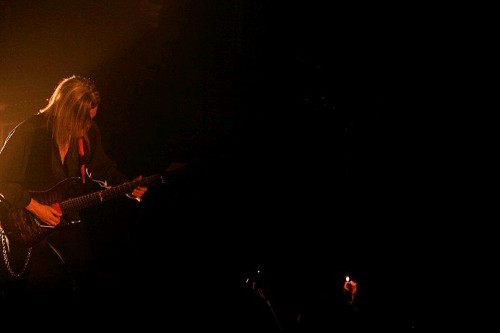
Fans stood in line for what seemed like forever to meet Forté after the show – another clue to the reaction high-tech guitar is receiving on the other side of La Manche. And while Forté would himself be the first to admit that his main influences are Jason Becker, Marty Friedman, and Yngwie Malmsteen, there is still nothing second-hand or imitative about him. What he’s received from the older generation is simply a launching pad for his own realities. And those realities being as dramatic and engrossing as they are, the result is a comprehensive, autonomous world of its own – complex but as accessible at the same time.

